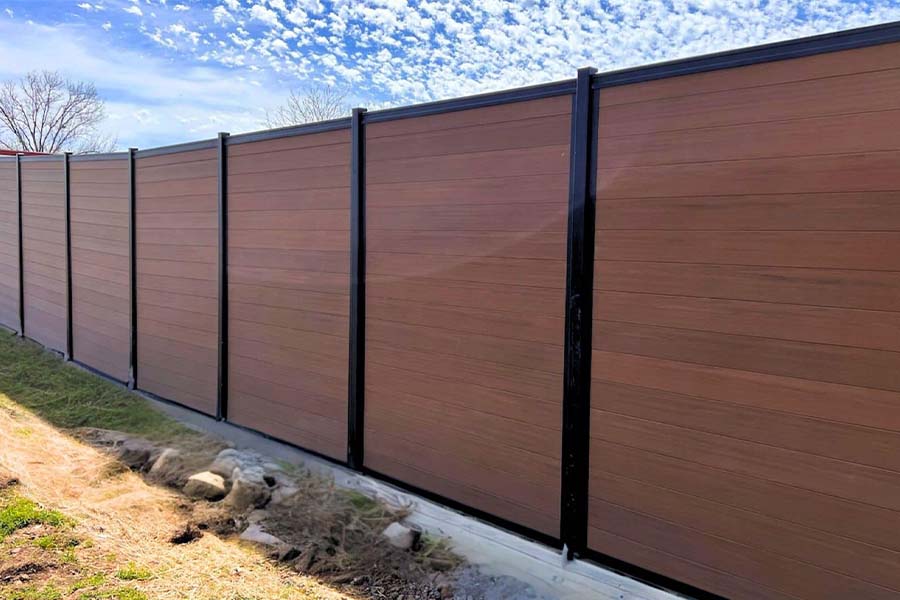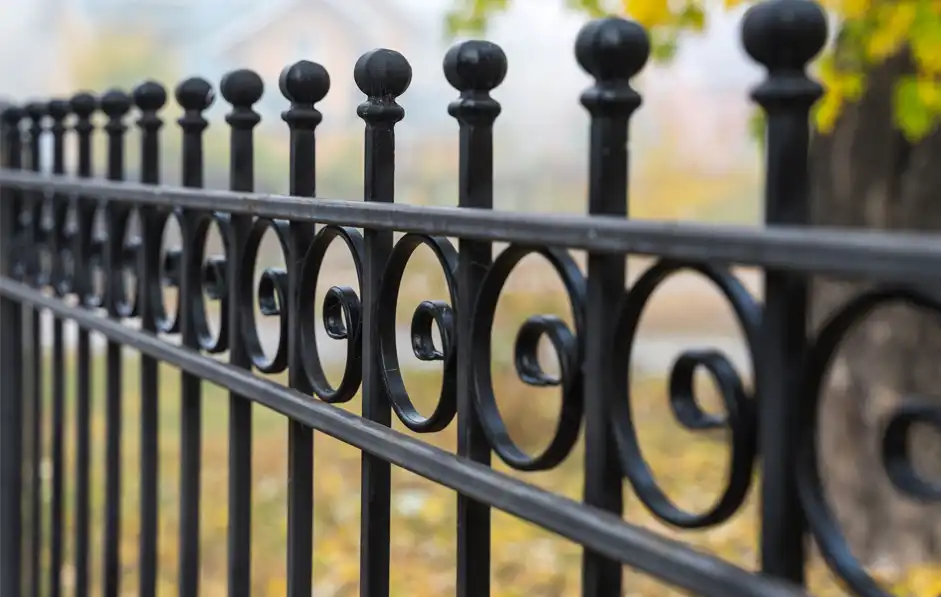All Categories
Featured

When mounting a fence, choosing the best material is essential to balancing capability, aesthetic appeals, and budget. Timber, vinyl, and light weight aluminum are amongst one of the most frequently selected fence materials, each with its disadvantages and strengths. This overview explores the benefits and drawbacks of these choices to aid you make an educated choice.

Wood Secure Fencing. Pros:. All-natural Appeal: Timber's classic beauty can improve any home with its warm and classic look. Customizable: You can paint, stain, or carve timber to fit your style choices. Cost effective: Wood fence is originally more economical compared to some various other materials. Environmentally Friendly: As a sustainable source, timber is eco-friendly and usually considered green. Disadvantages:. Maintenance-Intensive: Regular sealing, paint, or discoloration is needed to avoid damages from weather condition and bugs. Prone to Degeneration: Without proper care, wood can rot, warp, or fracture over time. Much shorter Life-span: Usually, timber fences last 10-15 years, depending on the kind of wood and upkeep. Wood is a terrific alternative for those that value aesthetic appeals and agree to spend in normal maintenance to preserve its look and resilience.
Vinyl Fencing. Pros:. Reduced Maintenance: Vinyl needs marginal care-- simply periodic cleansing with soap and water. Climate Resistant: It does not warp, rot, or yield to insect damage, making it extremely sturdy in different climates. Longevity: Vinyl fences can last 20-30 years with little to no repair services. Design Variety: Available in a large range of shades, designs, and appearances, including wood-like appearances. Disadvantages:. Higher First Price: Plastic fencings are more expensive ahead of time contrasted to timber. Susceptability to Cold: In exceptionally winter, vinyl can become vulnerable and fragile to breaking. Minimal Repair Options: Matching substitute panels can be challenging if damages takes place. Plastic fencing is excellent for homeowners searching for a long-lasting, low-maintenance service that supplies contemporary versatility.

Light Weight Aluminum Secure Fencing. Pros:. Rust-Proof: Aluminum stands up to deterioration, making it an outstanding choice for damp or wet atmospheres. Long lasting: In spite of being light-weight, aluminum is strong and can hold up against harsh weather. Reduced Upkeep: It needs very little upkeep, normally only periodic cleaning. Long Life expectancy: Aluminum fencings can last decades without considerable degeneration. Stylish Style: Usually utilized for ornamental objectives, light weight aluminum fence includes a sleek, sophisticated want to buildings. Disadvantages:. High Initial Investment: Light weight aluminum fencings are among the pricier options on the marketplace. Less Privacy: The open layouts usual with aluminum secure fencing do not provide much personal privacy. Susceptible to Damages: While sturdy, aluminum can damage if struck with enough force. Light weight aluminum is an excellent selection for home owners prioritizing aesthetics and durability without needing much upkeep.
Making Your Decision. When determining in between vinyl, aluminum, or timber fencing, consider your top priorities:
Wood suits those that value a natural appearance and don't mind placing in upkeep effort. Plastic is the most effective alternative for those looking for a low-maintenance, weather-resistant solution. Light weight aluminum uses smooth design and long-lasting resilience but might lack personal privacy. By thoroughly assessing these products' functions, you can pick a fence that matches your residential or commercial property while satisfying your practical and aesthetic needs.
Latest Posts
Leading Eye Care South - Nearby Eye Care Expert: Exceptional Care for Your Eyes.
Published Apr 10, 25
2 min read
Discover Affordable Design at Bare Bones Furnishings in Glens Falls
Published Apr 10, 25
1 min read
How to Expand the Life of Your Vinyl Fence?
Published Apr 09, 25
1 min read
More
Latest Posts
Leading Eye Care South - Nearby Eye Care Expert: Exceptional Care for Your Eyes.
Published Apr 10, 25
2 min read
Discover Affordable Design at Bare Bones Furnishings in Glens Falls
Published Apr 10, 25
1 min read
How to Expand the Life of Your Vinyl Fence?
Published Apr 09, 25
1 min read